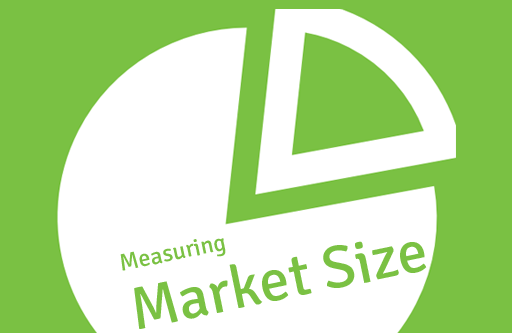
An understanding of market size is vital if a company wants to grow within its current market and expand into new markets. Without this understanding, it makes it difficult to know where your brand stands relative to competitors in your market, and whether there is potential in the market for increasing sales and market share.
There are two measures of market size that are most important for companies: Served available market (SAM) and total addressable market (TAM). In basic terms, SAM is the actual market size and TAM represents the notional market size. For example, the actual market size for bottled water is the current market size for water sold in bottles, whereas the notional market size is the total market size including other bottled drinks and even tap water.
An accurate market size figure will usually encompass many different segments that make up the total market. For example, a market size figure may take into account the different products and brands, the gender and age of buyers, and the geographical regions that make up the market. In B2B markets especially, the market size can also include different industry verticals and the size of companies that make up the market and buy particular products.
Taking steps to understand and calculate market size allows companies to plan for the future with greater confidence. In existing markets, it can reveal the potential for increasing sales and expanding market share, and tracked over a number of years can reveal trends in the market you may have been unaware of. Measuring market size also comes into play when planning expansion into new markets, allowing a company to assess whether the potential benefits outweigh the risks of entering a new market.
To learn more about measuring and calculating market size, and how our market sizing research can provide your business with crucial intelligence on your market, take a look at our market sizing research page.


